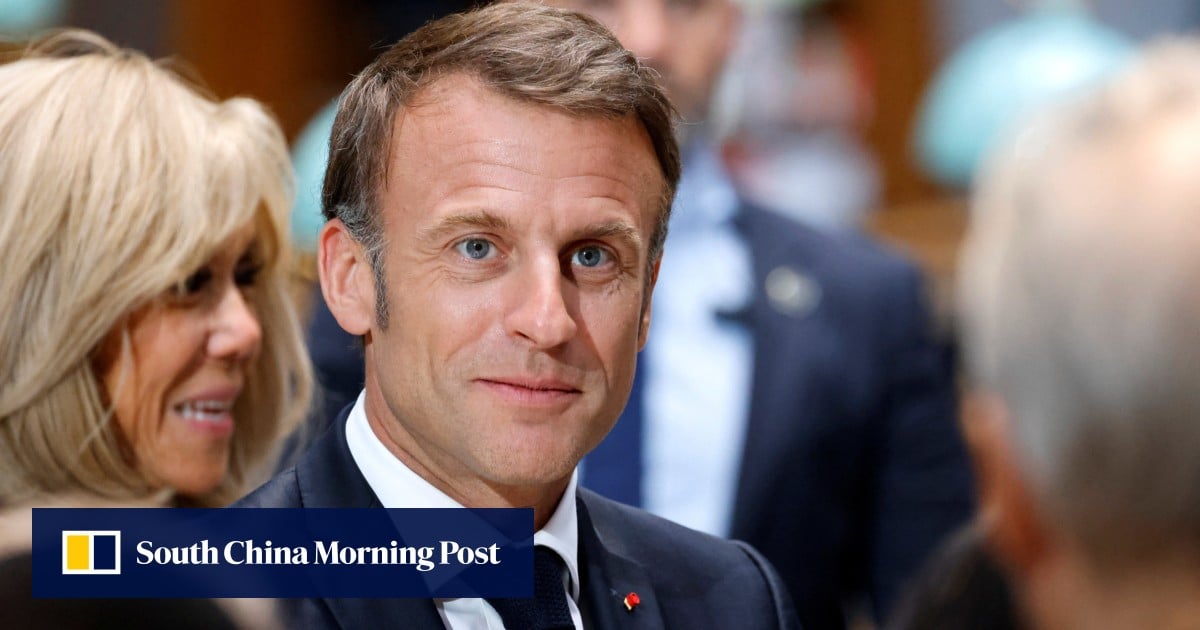


His comments came two weeks after French Foreign Minister Stephane Sejourne told his Chinese counterpart Wang Yi that Paris expected Beijing to “send very clear messages” to Moscow over the Ukraine war, reiterating Europe’s persistent requests for China to rein in its powerful neighbour.
What Sejourne meant by “clear messages” was “explicit condemnation of Russia’s military activities along the lines of Western rhetoric”, according to Moscow-based analyst Andrew Korybko.
“China has already expressed its stance towards the conflict on many occasions and continued to remain consistent in spite of Western pressure, so nothing is expected to change from its side,” the Moscow State Institute of International Relations-educated commentator said.
“At most, China will probably reiterate its position and possibly make reference to the Olympic truce, but whatever it may say is likely to disappoint the West, as it will not change its approach just because France again requested that it does.”
“If Russia achieves a military breakthrough along the ‘line of contact’, it may pressure Ukraine and the West into making concessions to Russia’s requests. But it may also result in the West’s intervention, as threatened by Macron [which would escalate the conflict],” Korybko said.
Russia and close ally Belarus have been barred from the Games over the invasion of Ukraine, which Minsk helped to stage. But International Olympic Committee president Thomas Bach has said there is “no question” that Israel – accused of genocide at the International Court of Justice over its military campaign in Gaza – will be in Paris.
The move has drawn criticism of arbitrary treatment, and Korybko slammed what he called “a political decision”.
“Both countries’ respective conflicts are different, but the alleged principle that was relied upon for banning Russian and Belarusian athletes should have been applied towards Israeli ones for consistency’s sake, to avoid further discrediting Olympic institutions by at least making it seem like there is a new standard at play, not blatantly double standards.”
Beijing-based political analyst Xu Qinduo noted that many countries in the developing world had criticised the West’s “hypocrisy” in approaching the conflicts in Ukraine and Gaza.
“With them including Israel in the Games, they have to do something to have Russia participate in a more equal manner, which is not something that cannot be overcome,” Xu said.
As of Tuesday, the number of Palestinians killed in Israel’s seven-month bombardment of the enclave was close to 34,000, most of them children and women.
A United Nations report published at the two-year mark of Russia’s invasion of Ukraine on February 22 estimated 10,582 civilian deaths.
Chinese President Xi Jinping will visit Paris in May, shortly ahead of the opening of the Games and a little over a year since Macron’s three-day state visit to China – a trip celebrated by the Chinese public but sparking negative coverage in Western media over accusations that cordiality with Beijing went against a united European front on global issues.
Josef Gregory Mahoney, a politics and international relations professor at East China Normal University, said Macron may have overestimated Beijing’s influence on Moscow, despite his valid assessment about China risking its relationship with Europe by not condemning its strategic partner.
“Macron has gone back and forth, sometimes appearing to be the most reasonable out of the Group of Seven leaders, sometimes the most inconsistent,” Mahoney said.
He said Macron had made the appeal even though China believed a truce to be unlikely, given Russia’s confidence in winning and widening fissures in US politics.
China, France make peace pledge on Ukraine as Macron caps trip with Xi meeting
“Perhaps this appeal is a desperate but honest attempt to seek peace and reconciliation, not only between the belligerents, but likewise heal the disconnects that have grown between China and Europe,” Mahoney said, adding that Macron could also be trying to gain ground on the world stage.
Putin has visited just a handful of countries since the invasion of Ukraine, mostly former Soviet states and some Middle Eastern nations.
The fact that he had chosen China for his first overseas trip since being reelected in March showed the value that Moscow attached to its ties with Beijing amid widening geopolitical fault lines, Xu said.
“It shows how important China is to Russia strategically, politically and economically, given its damaged ties with the West. And Russia is nearly equally important to China, as the latter faces growing containment from Washington and provocations in the South China Sea and the Taiwan Strait.”